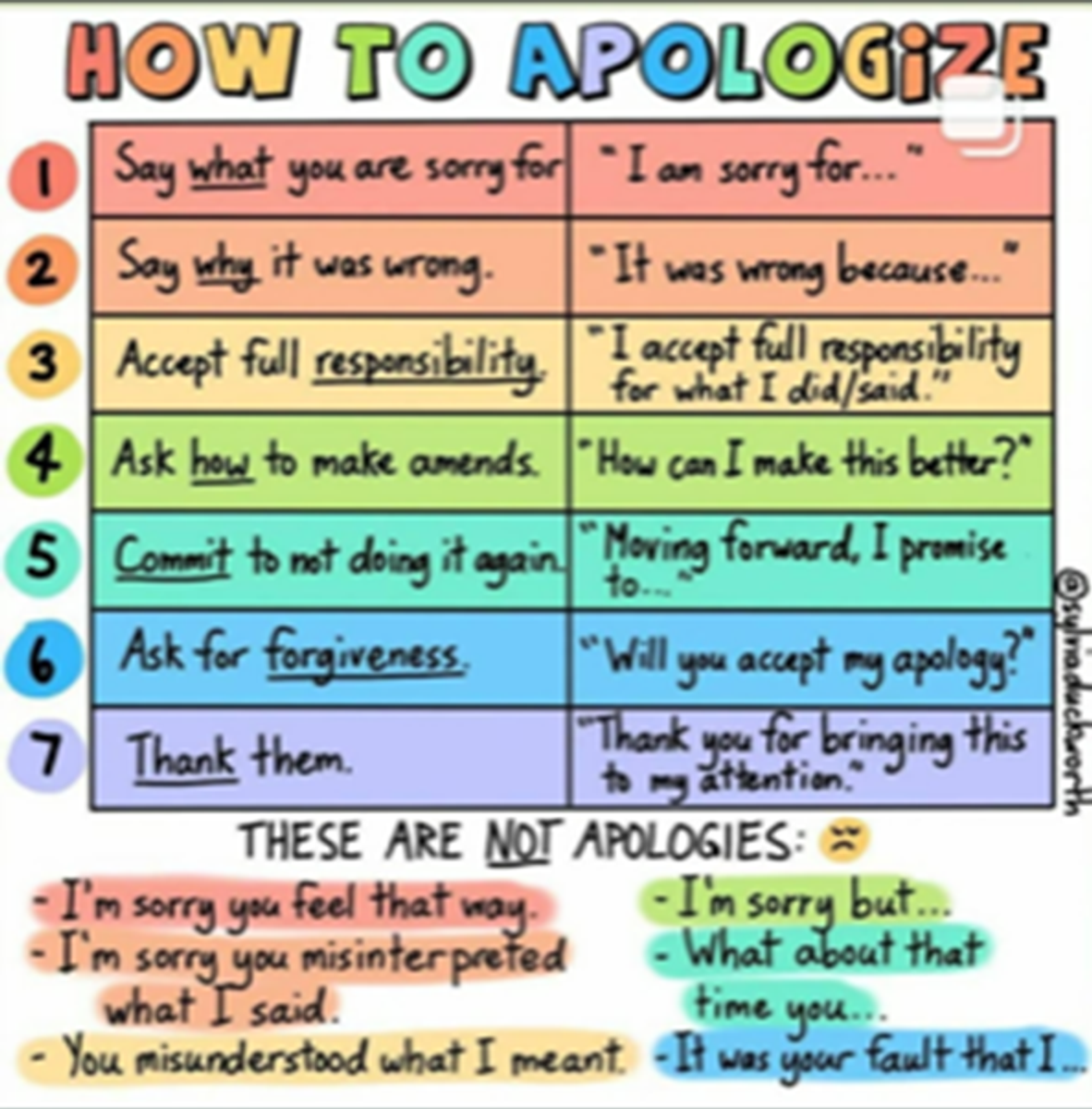Wellbeing
INTEGRITY: APOLOGISING

Wellbeing
INTEGRITY: APOLOGISING
Apologizing is an important skill for children to learn, as it helps them develop empathy, take responsibility for their actions, and mend relationships. This action is one thing that all our students are wanting to receive when an unwanted action occurs at school.
Here are some guidelines on how children could apologise:
Encourage sincerity: Teach your child the importance of being genuine and sincere when apologizing. They should understand that an apology is not just about saying the words but also meaning them.
Acknowledge the action: Help your child understand the specific behaviour or action that warrants an apology. This will help them take responsibility for their actions and demonstrate that they understand why their behaviour was wrong.
Use "I'm sorry" or "I apologise": Teach your child to use these phrases to initiate an apology. Encourage them to say it directly to the person they have hurt or affected.
Express remorse: Encourage your child to express remorse for their actions. They can say things like, "I feel really bad about what I did," or "I didn't mean to hurt you, and I'm sorry."


Take responsibility: Teach your child to take ownership of their actions by using phrases such as, "It was my fault," or "I should not have done that." This helps them understand the consequences of their behaviour and shows that they are willing to learn from their mistakes.
Offer to make amends: Depending on the situation, your child can offer to make things right or fix any damage caused. For example, they might say, "Can I help you clean up?" or "Is there anything I can do to make it up to you?"
Learn from the experience: Encourage your child to reflect on their actions and discuss how they can avoid making the same mistake in the future. This helps them grow and develop better behaviour patterns.
Give them time: It's important to give your child the opportunity to apologise in their own way and time. Pressuring them to apologise immediately might result in insincere apologies.
Practice empathy: Teach your child to consider the feelings of others and imagine how their actions might have hurt someone. This helps them develop empathy and understand the impact of their behaviour on others.
Encourage forgiveness: Teach your child the importance of forgiving others when they apologise. This helps promote a positive and understanding environment.
Remember that teaching children about apologies is an ongoing process. Be patient, offer guidance, and lead by example through your own actions and apologies.
I hope these tips help with the process of teaching your children about meaningful apologies.
Kind Regards,
Brianna